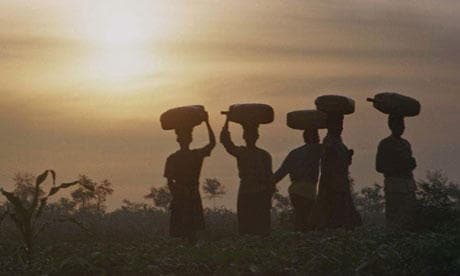The 1994 Rwandan Genocide was an act of ethnic persecution that claimed the lives of many. Survivors of the genocide were primarily women, who suffered severe violence and brutal rape. Today, these women are healing, with help from the Rwandan government and organizations such as the Imbuto Foundation.
 Rwandan First Lady, Jeannette Kagame, established the Imbuto Foundation. Literarily translated, Imbuto means “seed,” a title well suited for a foundation with goals of empowering and supporting women through education, health care, and HIV/AIDS counseling.
Rwandan First Lady, Jeannette Kagame, established the Imbuto Foundation. Literarily translated, Imbuto means “seed,” a title well suited for a foundation with goals of empowering and supporting women through education, health care, and HIV/AIDS counseling.
The foundation also provides mentoring and awards for young Rwandan women achievers and young Rwandan women who are leaders in their communities.
 There is a need for organizations geared toward the empowerment of women in Africa. Gender inequality is still prevalent in many countries. It is undeniable that culture, of course, fuels gender inequality. Across different cultures, people have specific notions about gender roles in society. The man is regarded as head of the household; he is the provider and the strong dominant figure, while “the woman’s place” is in the home, raising the children. At some point in the process of socialization, we were taught these notions of gender roles, whether it was through statements like “boys don’t cry,” or “a girl should not act like this.”
There is a need for organizations geared toward the empowerment of women in Africa. Gender inequality is still prevalent in many countries. It is undeniable that culture, of course, fuels gender inequality. Across different cultures, people have specific notions about gender roles in society. The man is regarded as head of the household; he is the provider and the strong dominant figure, while “the woman’s place” is in the home, raising the children. At some point in the process of socialization, we were taught these notions of gender roles, whether it was through statements like “boys don’t cry,” or “a girl should not act like this.”
Girls are socialized to be passive and submissive, and many times, abuse is internalized due to these notions of gender roles. When abuse occurs, it is the women who are typically blamed, while men fear little punishment. Foundations like the Imbuto Foundation serve as organizations for women by women, which provide a voice for women who have been silenced by abuse and violence.
Photos: Guardian.co.uk, the Imbuto Foundation










